★★
“Not really very savage at all”
 This is one of those films where the same person wrote, directed and starred in it, and once again, the results illustrate the problems with such an endeavour. Almost any project will benefit from an external perspective which can offer constructive criticism, but when this is removed, the flaws typically end up multiplied. That said, this isn’t terrible. I think Riches the screenwriter comes out best, with a story which bypasses the usual cliches of urban storylines e.g. gangster rising out of the gutter, and does offer some genuine surprises. Director Riches also gets some points for restraint on the soundtrack front; it’s not comprised entirely of her mates rapping badly.
This is one of those films where the same person wrote, directed and starred in it, and once again, the results illustrate the problems with such an endeavour. Almost any project will benefit from an external perspective which can offer constructive criticism, but when this is removed, the flaws typically end up multiplied. That said, this isn’t terrible. I think Riches the screenwriter comes out best, with a story which bypasses the usual cliches of urban storylines e.g. gangster rising out of the gutter, and does offer some genuine surprises. Director Riches also gets some points for restraint on the soundtrack front; it’s not comprised entirely of her mates rapping badly.
It’s as an actress that Riches is weakest. The story has her playing Tiana, a woman whose entirely life has been dogged by poor relationships with men, from a distant father through bad boyfriends, to a controlling and eventually abusive husband, who kicks her and young daughter Erica (Session) out on the street. The only thing keeping Tiana sane is the classes she gives at the local martial arts school, owned by Mr. Lewis (Hoo), and she decided to use these skills to make bad men pay for their behaviour. This comes close to home, because she suspects that her sister, Rochelle (Amor), is also in an abusive relationship. These suspicions prove well-founded, though in one of those genuine surprises, not quite as Tiana believes.
The problem is that Tiana is never even slightly convincing as a bad-ass. Her idea of martial-arts training is, I kid you not, jumping jacks, and most of the fights we see are poorly-staged and/or brief, I suspect out of necessity. It’s the kind of film which needs to go a lot harder than the lead actress is capable of. “Concerned mother” is within her acting range; “angel of vengeance” is not. I did appreciate how the script does not attempt to go #AllMen on us, with a couple of sympathetic male characters. Mr. Lewis is probably the most well-developed, though he does fall right into the wheel-house of the “wise Oriental spouting philosophical insights” trope instead. But he does deliver some unexpected truths.
The structure is either clunky or interesting, and I’m not sure which. It begins with her abducting one of her targets, then leaps back decades to tell Tiana’s story from the very beginning. I’m not certain anything useful is gained by this, and by the time it circles back, we’ve largely forgotten why we are supposed to care. The final act is the best in most departments, including Riches apparently doing one actual stunt which genuinely surprised me, and proceedings that capture a down-to-earth tone, missing in dumb plot threads like Mr. Lewis giving the dojo to Tiana. To be brutally honest, I’d not blame the viewer if they’d bailed by that point, having decided Riches needs to focus her talents on one area.
Dir: Jezar Riches
Star: Jezar Riches, Howard Hoo, Cheri Amor, Dalaini Session





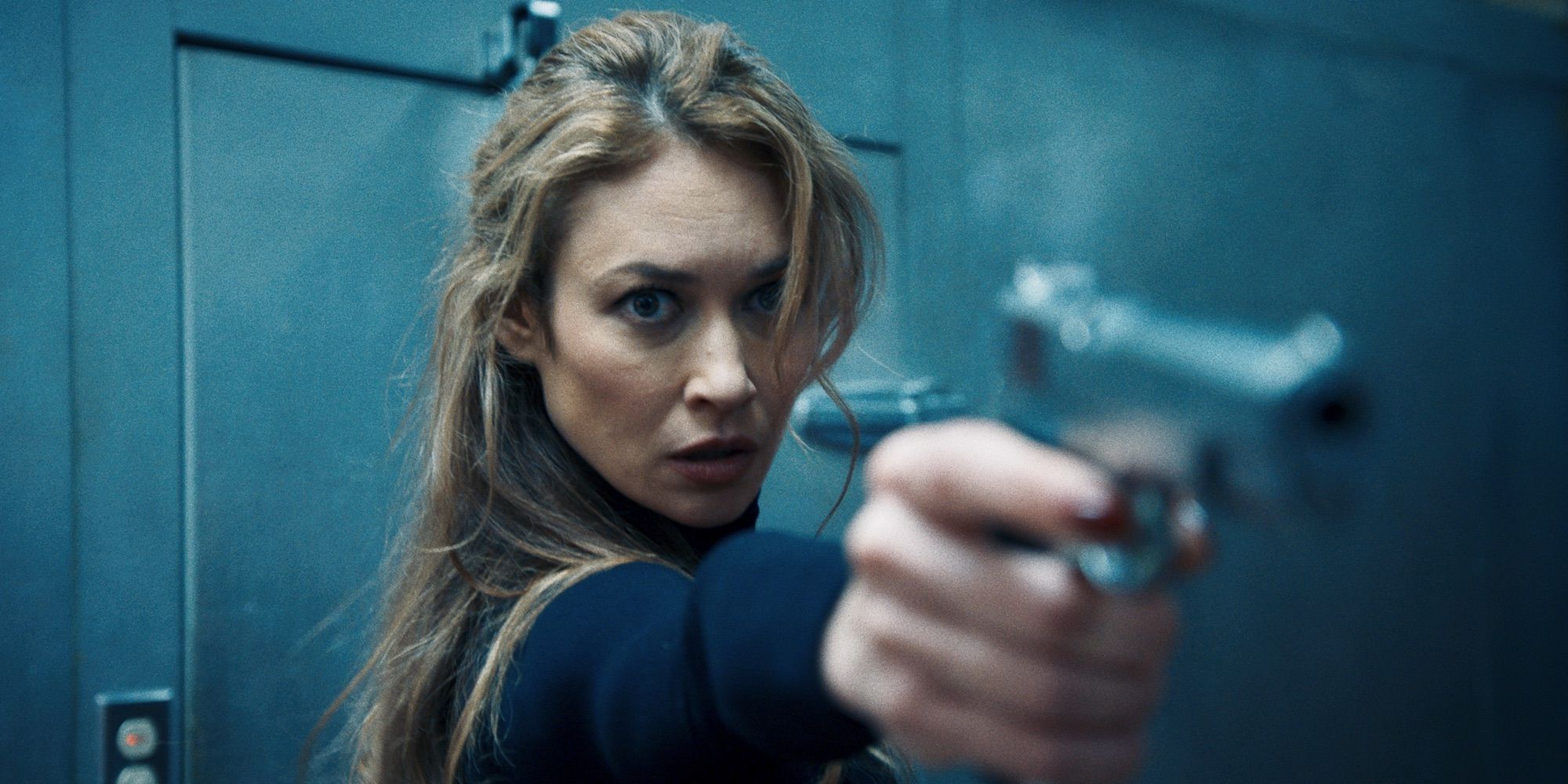 ★★★½
★★★½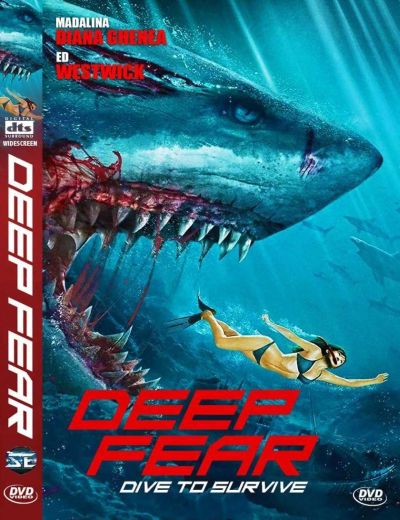 Naomi (Ghenea) is sailing a schooner single-handed in the Caribbean, returning it from Antigua to Grenada so it’ll be ready for a charter customer to take out. Her boyfriend, Jackson (Westwick) has already gone ahead to prepare things there. But a squall diverts Naomi off course, and she then stumbles across boat wreckage to which Maria (Gómez) and Jose (Coppet) are desperately clinging. They tell her there’s still a survivor trapped on the sea bottom, and Naomi dives down to rescue Tomas from his watery tomb. However, on returning to the surface with him, she gets a nasty surprise and finds her work is not over. For the survivors were also transporting 200 kg of cocaine.
Naomi (Ghenea) is sailing a schooner single-handed in the Caribbean, returning it from Antigua to Grenada so it’ll be ready for a charter customer to take out. Her boyfriend, Jackson (Westwick) has already gone ahead to prepare things there. But a squall diverts Naomi off course, and she then stumbles across boat wreckage to which Maria (Gómez) and Jose (Coppet) are desperately clinging. They tell her there’s still a survivor trapped on the sea bottom, and Naomi dives down to rescue Tomas from his watery tomb. However, on returning to the surface with him, she gets a nasty surprise and finds her work is not over. For the survivors were also transporting 200 kg of cocaine.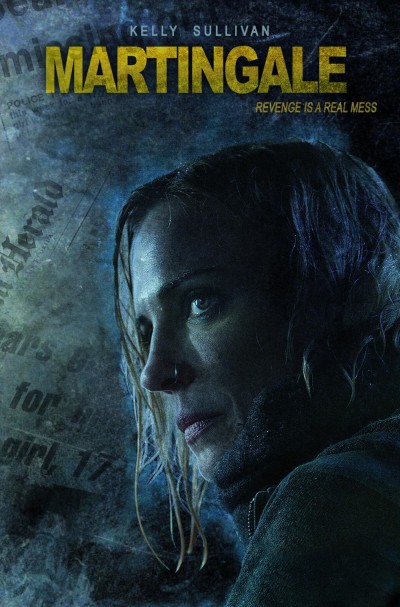 It’s probably symptomatic of… something, that the film’s title is never explained. With the main character working in a casino, I presume it’s a reference to the Martingale betting system, where you basically double your bet after every loss. It guarantees a profit – unless you hit such a long losing streak you run out of money entirely. Its relevance here is uncertain, and I doubt most viewers would know what a martingale is either. But then, the film is very good at not explaining stuff. Another example would be, what the scam is supposed to be with Andi (Sullivan) collecting left-behind cash-out casino slips and handing them to a collaborator, Whit (Melikhov). These are for trivial amounts, so why bother?
It’s probably symptomatic of… something, that the film’s title is never explained. With the main character working in a casino, I presume it’s a reference to the Martingale betting system, where you basically double your bet after every loss. It guarantees a profit – unless you hit such a long losing streak you run out of money entirely. Its relevance here is uncertain, and I doubt most viewers would know what a martingale is either. But then, the film is very good at not explaining stuff. Another example would be, what the scam is supposed to be with Andi (Sullivan) collecting left-behind cash-out casino slips and handing them to a collaborator, Whit (Melikhov). These are for trivial amounts, so why bother?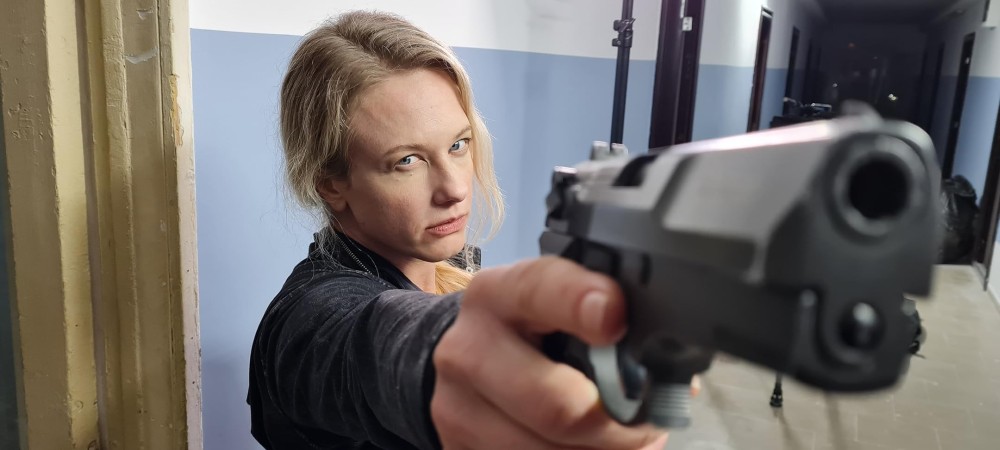 ★★
★★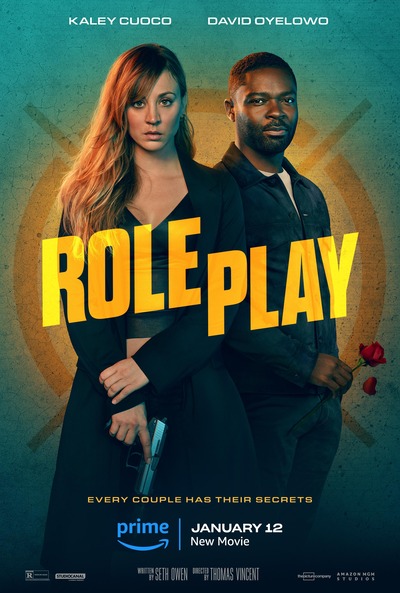 If a little light on the action front, this probably makes up for it in heart. On surface, the Brackett family are largely like any other. Sure, mom Emma (Cuoco) spends a lot of time out of town on business. But she loves husband Dave (Oyelowo) and her two kids, even if she’s a little unfocused, forgetting their anniversary. The problem is, as we know from the start, that Emma is a hitwoman, who used to work for an organization called Sovereign, before turning freelance. They’re still after her. And that’s where the problems start, as on a make-up anniversary date at a hotel, she’s spotted by Bob Kellerman (Nighy), another freelancer, interested in collecting the reward on Emma’s head.
If a little light on the action front, this probably makes up for it in heart. On surface, the Brackett family are largely like any other. Sure, mom Emma (Cuoco) spends a lot of time out of town on business. But she loves husband Dave (Oyelowo) and her two kids, even if she’s a little unfocused, forgetting their anniversary. The problem is, as we know from the start, that Emma is a hitwoman, who used to work for an organization called Sovereign, before turning freelance. They’re still after her. And that’s where the problems start, as on a make-up anniversary date at a hotel, she’s spotted by Bob Kellerman (Nighy), another freelancer, interested in collecting the reward on Emma’s head.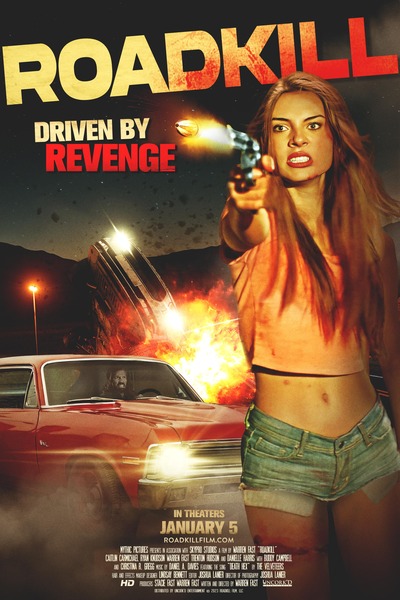 To be one hundred percent clear, the best thing about this is the rather arresting poster. A far better film than what we have here, would struggle to live up to it. Instead, we have a classic example of vanity cinema, where one man decides to write, direct and play a major part in his own movie. The over-ambition here is palpable, to an often accidentally amusing degree. Perhaps most obviously, a pair of “car chases” – and I use the quotes deliberately – which unfold at a stately 15-20 mph, involving a muscle car on which the production clearly could not afford a single scratch on the paint. They’d have been better off not bothering.
To be one hundred percent clear, the best thing about this is the rather arresting poster. A far better film than what we have here, would struggle to live up to it. Instead, we have a classic example of vanity cinema, where one man decides to write, direct and play a major part in his own movie. The over-ambition here is palpable, to an often accidentally amusing degree. Perhaps most obviously, a pair of “car chases” – and I use the quotes deliberately – which unfold at a stately 15-20 mph, involving a muscle car on which the production clearly could not afford a single scratch on the paint. They’d have been better off not bothering. 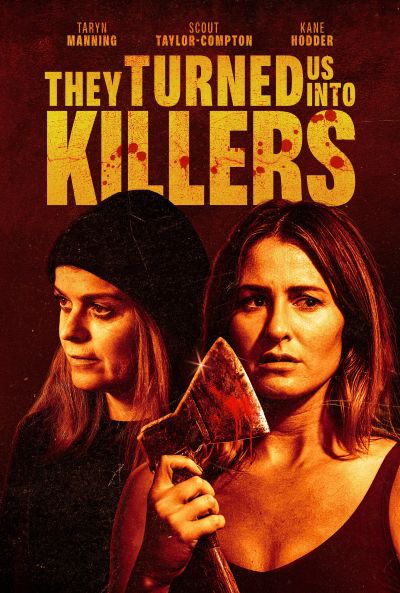 Well, this is a spectacular mess. Except, the word “spectacular” implies something of interest, and that’s far from anything this delivers in its boring trudge towards a predictable ending. It demonstrates the perils when you, as a film-maker, decide to take your story and fragment the timeline. This only works if the script is able to maintain coherence around the jumps back and forth. This painfully fails on that count, beginning in the middle, but then bouncing back and forth to the point you know little and care less about any of the participants, or what happens to them. How bad is it? It gets the rare honour of me starting on the review, when there’s still half an hour to go.
Well, this is a spectacular mess. Except, the word “spectacular” implies something of interest, and that’s far from anything this delivers in its boring trudge towards a predictable ending. It demonstrates the perils when you, as a film-maker, decide to take your story and fragment the timeline. This only works if the script is able to maintain coherence around the jumps back and forth. This painfully fails on that count, beginning in the middle, but then bouncing back and forth to the point you know little and care less about any of the participants, or what happens to them. How bad is it? It gets the rare honour of me starting on the review, when there’s still half an hour to go.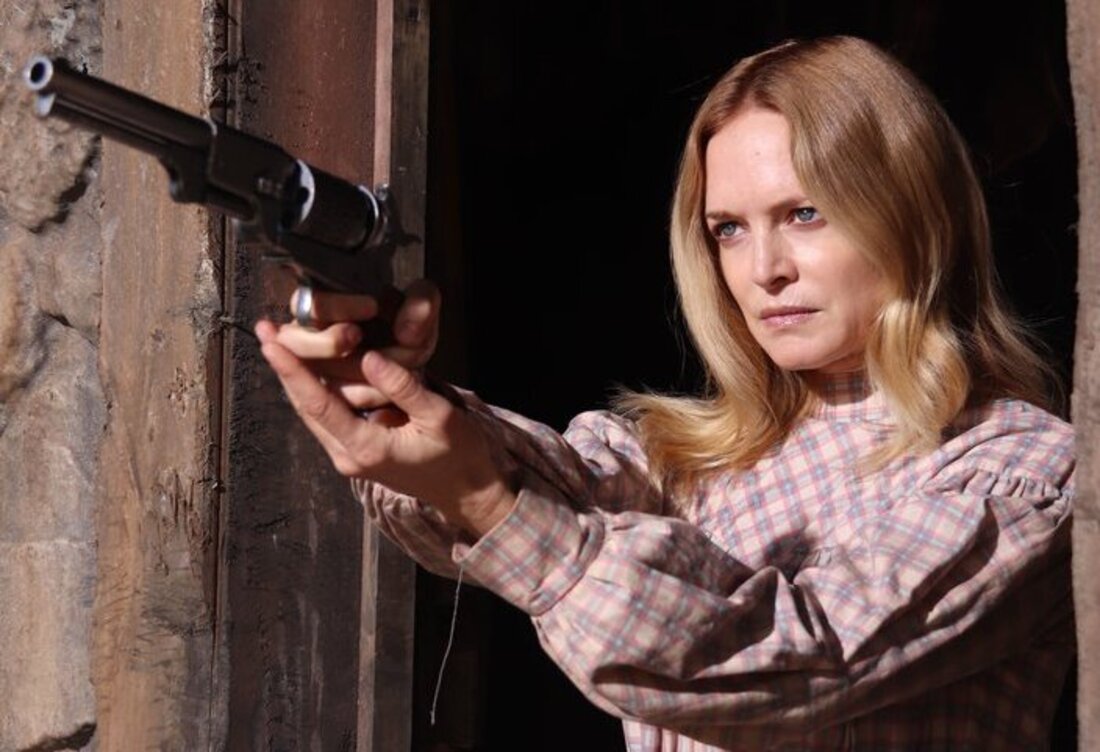 This is definitely a slow burn. The first hour is more concerned with depicting the life of Pandora and Hester, along with how Calhoun’s arrival changes things. Though I have to say, after how the film shifts at the end, you’ll find yourself viewing these early interactions in a very different light. Bear John doesn’t even arrive on screen until well into the movie, in a well-handled scene which does a good job of depicting his gang and their relationships. Thereafter, there’s a looming sense of threat, with a ticking clock of escalating tension as the cabin’s inhabitants try to get ready for the violence to come. Again, without revealing too much, mother and daughter may be more ready for this than they seem.
This is definitely a slow burn. The first hour is more concerned with depicting the life of Pandora and Hester, along with how Calhoun’s arrival changes things. Though I have to say, after how the film shifts at the end, you’ll find yourself viewing these early interactions in a very different light. Bear John doesn’t even arrive on screen until well into the movie, in a well-handled scene which does a good job of depicting his gang and their relationships. Thereafter, there’s a looming sense of threat, with a ticking clock of escalating tension as the cabin’s inhabitants try to get ready for the violence to come. Again, without revealing too much, mother and daughter may be more ready for this than they seem.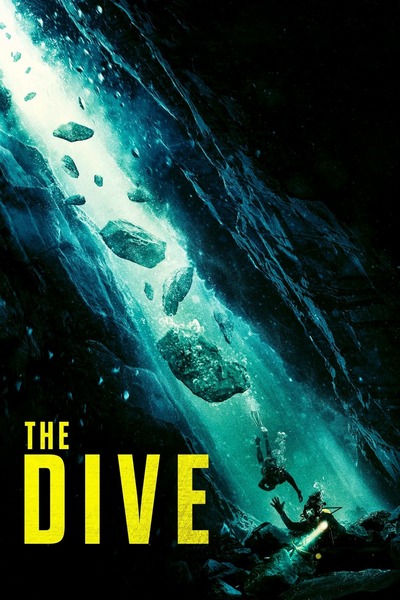 This is an English language remake of
This is an English language remake of